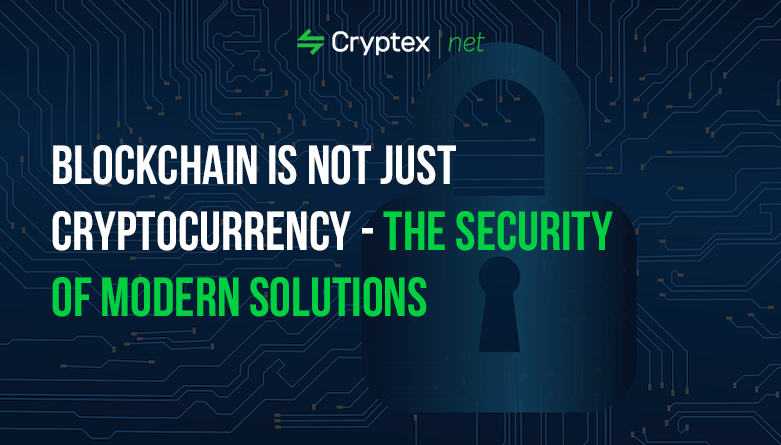Blockchain is not just cryptocurrency - the security of modern solutions
19.04.2021 | mnalilovich

The only question currently remaining for blockchain platforms is whether today’s solutions are capable of providing the necessary level of reliability and security. While some analysts have expressed concerns about the possible prohibition of decentralized solutions without a single focal point, security experts believe that these solutions are not capable of having much impact on the technology.
The reliability of first implementation blockchain is not in doubt. Leaving aside the possible error of typing a newspaper before it goes to print, the attempt to fake or alter published information becomes so expensive and complicated that it is mathematically impossible to implement in the real world.
What are the features of blockchain that allow you to talk about its reliability
The easiest way to break down the reliability of blockchain implementation is with the example of cryptocurrency, as the most developed direction. So far, not a single case of coin theft by attack or tampering with the blockchain has been reported. All known incidents were realized at the expense of social engineering or vulnerability of target systems where private wallet keys were stored.
As it turned out, only four factors were sufficient to achieve these figures:
-
Distributed storage of full copies of blockchains – with this approach, no member of the network is able to make changes to the record without the consent of the majority of users;
-
Inclusion of information about previous blocks in subsequent blocks – this increased reliability and eliminated inappropriate modification of a single piece of the blockchain;
-
Every action in the network, in this case – a transaction, is securely protected by cryptographic methods – hacking would take so much time that even the use of the most powerful supercomputer would require an unreasonable amount of money;
-
The transparency of the information allows you to track all the movements of the coins – this makes it possible to track actions taken after unauthorized access is gained.
While the latter increases reliability, it negates one of the main intentions of distributed blockchain: absolute freedom.
“Those who would give up essential Liberty, to purchase a little temporary Safety, deserve neither Liberty nor Safety.”
Benjamin Franklin
If whoever decides - what to do with this or that kind of information in blockchain, you can’t talk about complete freedom, and the Internet can’t fully migrate to the WEB 3.0 era.
What uses does blockchain have outside of cryptocurrencies
Satoshi Nakamoto has shown the world that blockchain can effectively solve a range of problems, the development of technology allows it to do so with a high degree of reliability and trust. Now distributed registries are becoming a trend, not only financiers, but also government agencies and commercial organizations are paying attention to them. Of the existing blockchain solutions, as the most interesting, we can single out several.
South Korea’s vaccination certificates
Many governments are talking about the need to introduce some kind of “vaccination passport” system to ease the restrictions associated with the current epidemiological situation. By the end of April, it will be possible to confirm coronavirus vaccination in South Korea using smartphone.
The country’s prime minister said that the authentication of the certificate will be organized on blockchain technology, which prevents individual users from changing or otherwise tampering with vaccination information. It will be based on the corporate InfraBlockchain, launched at the end of last year.
New York City Health Passport
After a pilot launch within the city, the citizen health passports, developed by the government in conjunction with IBM, began to work across the state. As in the case of South Korea, New York authorities took this step due to the difficult epidemiological situation. Excelsior Pass is a blockchain-based analogue of the pass, allowing the weakening of quarantine measures for vaccinated citizens or those whose bodies contain antibodies to a new virus.
Retail
Several brand-name clothing manufacturers have introduced authentication using a distributed blockchain. Thus, ordinary buyers have the opportunity to trace the entire product supply chain from the factory to the store shelf and be confident that the item being purchased is indeed authentic.
Separately, Everledger’s “diamond blockchain” can be singled out. It stores information about the product, just like a regular retail chain. Only in this case, the goods are expensive. Using registry technology, a record of more than a million diamonds is stored. The “card” contains the mine, weight, cut, clarity and certificate number.
Conclusion
Blockchain is gaining usage in non-financial or indirectly related technologies. Not only commercial organizations are interested in innovation, but also the public sector. A number of experts tend to predict a gradual transition of document and money exchange to blockchain. It is blockchain that provides the security needed in every case, and the impossibility of document counterfeiting will dramatically reduce fraud and corruption offenses.